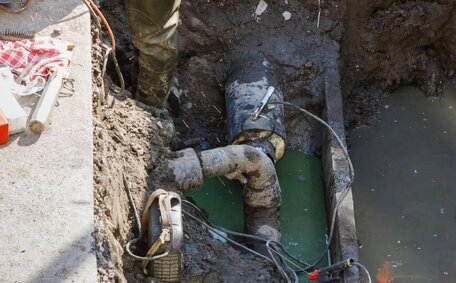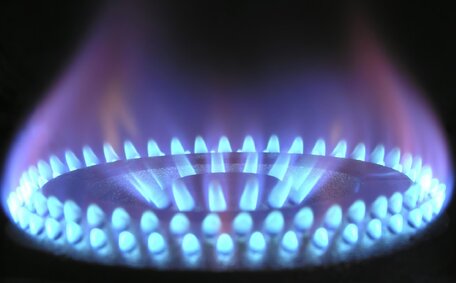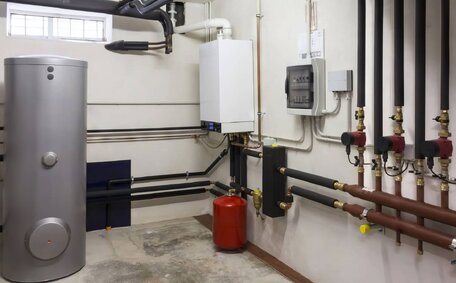
Sump Pump Failure Solutions
Sump pumps fail due to power outages, clogs, frozen pipes, and more. Prevent water damage by understanding causes and contacting plumbers for solutions to extend pump life.
Read MoreDisposing of old gas appliances properly is crucial for safety and environmental protection. Non-functioning gas stoves, water heaters, and other appliances can release hazardous substances if not correctly handled.
Adhering to local regulations and safe disposal is imperative. Options include recycling bins for cylinders at waste facilities, joining appliance recycling programs, or arranging pickup with a licensed gasfitter. Proper disposal captures and manages harmful refrigerants, insulation materials from white goods, and combustible gases effectively.
This guide explains the importance of gas appliance disposal, options available, safety precautions, and steps for individual action. Proper procedures protect the environment, conserve resources, and prevent safety hazards such as leaks and poisonings.
Safety is paramount when handling old gas appliances, which contain hazardous materials that pose risks if mishandled.
Before moving or disposing of a gas appliance, consider the following:
Gas safety precautions are critical to preventing leaks that can result in explosions, fires, oxygen depletion, carbon monoxide poisoning, and exposure to harmful refrigerants and insulation.
Dryers and air conditioners may house hazardous materials like mercury, old coolants, or asbestos, necessitating specialised disposal as per environmental laws.
Exercising caution protects yourself, the community, and environment when you dispose old gas products at their end-of-life.
Before disposal, review the correct preparation methods to ensure gas appliances are safe for transport and handling.
Follow these key steps to prepare your gas device:
Correct appliance preparation is crucial to responsibly managing materials, enclosing hazardous components, and avoiding leaks or accidents.
Ensuring appliances are emptied of gas, detaching components, securing removable parts, and thorough cleaning enable safe handling by waste facilities and recyclers.
Proper preparation helps specialists recycle and reintegrate materials like gases, oils, chemicals, and refrigerants into industry processes.
In Cronulla and across Sydney, there are strict regulations regarding gas appliance disposal from state and local government authorities.
The Protection of the Environment Operations Act 1997 stipulates that incorrect disposal of gas cylinders can incur fines up to $750,000 for corporations and $250,000 for individuals. Appliances with hazardous materials may also breach Dangerous Goods regulations.
Gas cookers, hot water systems, and heaters must be degassed and deactivated before recycling and disposal at a licensed facility. Most kerbside pickup services cannot accept these items.
Discover updated local disposal options through your council or by consulting:
Failing to follow proper gas appliance disposal protocols risks severe penalties. For personalised guidance and adherence to local regulations, get in touch with us directly or consult with a licensed gasfitter.
Recycling your old gas appliances is the environmentally favoured option over landfill disposal.
Recycling enables the responsible capture and management of materials such as refrigerants, insulation, oils, and steel from household appliances. It helps get rid of waste, conserves resources, and prevents dangerous materials leaching into soil and waterways. Gas appliances processed at recycling centres are broken down, with components like metal, plastic and glass separated for reuse in new products.
Conversely, landfill disposal of end-of-life appliances wastes resources and risks contaminating the environment with hazardous substances. Landfills also aggravate decaying effects by emitting methane, a more potent greenhouse gas, which exacerbates climate change.
For Cronulla residents looking to find recycling options in your area for gas appliances, consider the following:
For certain appliances, retailers may offer free pickup for home collection services upon delivery of a replacement product. Consult with our team to explore your service and recycling options further.
Opting for recycling over landfill enhances responsible disposal of gas appliances and the recovery of valuable materials. This promotes efficient resource management, supporting a circular economy and protecting our shared environment.
When removing an old appliance from your home that use gas for disposal, follow this step-by-step process to safely disconnect, prepare and transport the item:
Systematic steps ensure the safe removal of unwanted gas appliances, preventing accidents and promoting secure handling. Detaching gas connections, stabilising parts, cleaning thoroughly and transporting securely guarantees environmental risks are minimised.
Cronulla Plumbing’s licensed technicians offer comprehensive assistance from disconnection to recycling for safe disposal. Contact us or call 1300 349 338.
At Cronulla Plumbing, we offer professional gas appliance disposal services to safely remove and recycle your end-of-life items.
Our licensed technicians do more than just disconnect and dismantle your cooker; they ensure safe retirement of your appliance:
We adhere to all regulations for the responsible disposal of hazardous substances. This includes capturing CFCs and other destructive gases before they can damage the ozone layer.
Our appliance removal services simplify the disposal process. Simply call 1300 349 338 or email us to arrange an appointment.
Don’t risk fines, accidents or environmental harm. Trust our experts to dispose your gas appliances and equipment promptly and responsibly.
Gas appliances contain harmful chemicals that can severely damage the environment if disposed of irresponsibly. Key considerations for safe disposal include:
Older gas appliances often used CFC refrigerants that deplete the ozone layer upon release, significantly impacting the environment. Proper degassing and capture of these greenhouse gases before disposal is crucial.
Asbestos, fibreglass insulation, mercury switches, and combustion by-products can contaminate land and water if they leach from appliances over time.
Gas appliances emit potent greenhouse gases during operation and decomposition when landfilled. Items that can recycled, such as metal components, prevents additional methane release.
Recycling gas appliance materials like steel, copper and aluminium reduces waste while allowing their reuse in new products.
Our licensed technicians adhere to stringent procedures to drain fluids, capture gases, and stabilize appliances, minimizing environmental risks. We guarantee the safe handling of dangerous chemicals from removal to responsible disposal.
Rely on Cronulla Plumbing to safeguard your family and the community, whilst protecting the environment. Contact us or call 1300 349 338 to utilise our appliance disposal services.
Sump pumps fail due to power outages, clogs, frozen pipes, and more. Prevent water damage by understanding causes and contacting plumbers for solutions to extend pump life.
Read MoreIf your monthly gas bill rises suddenly for no clear reason, the cause could be a gas leak from old pipes or appliances. Contact your provider to investigate.
Read MoreScale buildup reduces the efficiency of hot water systems over time. Regular descaling helps remove this. Flush your system with vinegar or a descaling solution.
Read MoreCronulla, 2230 NSW
We will call back as soon as possible.




